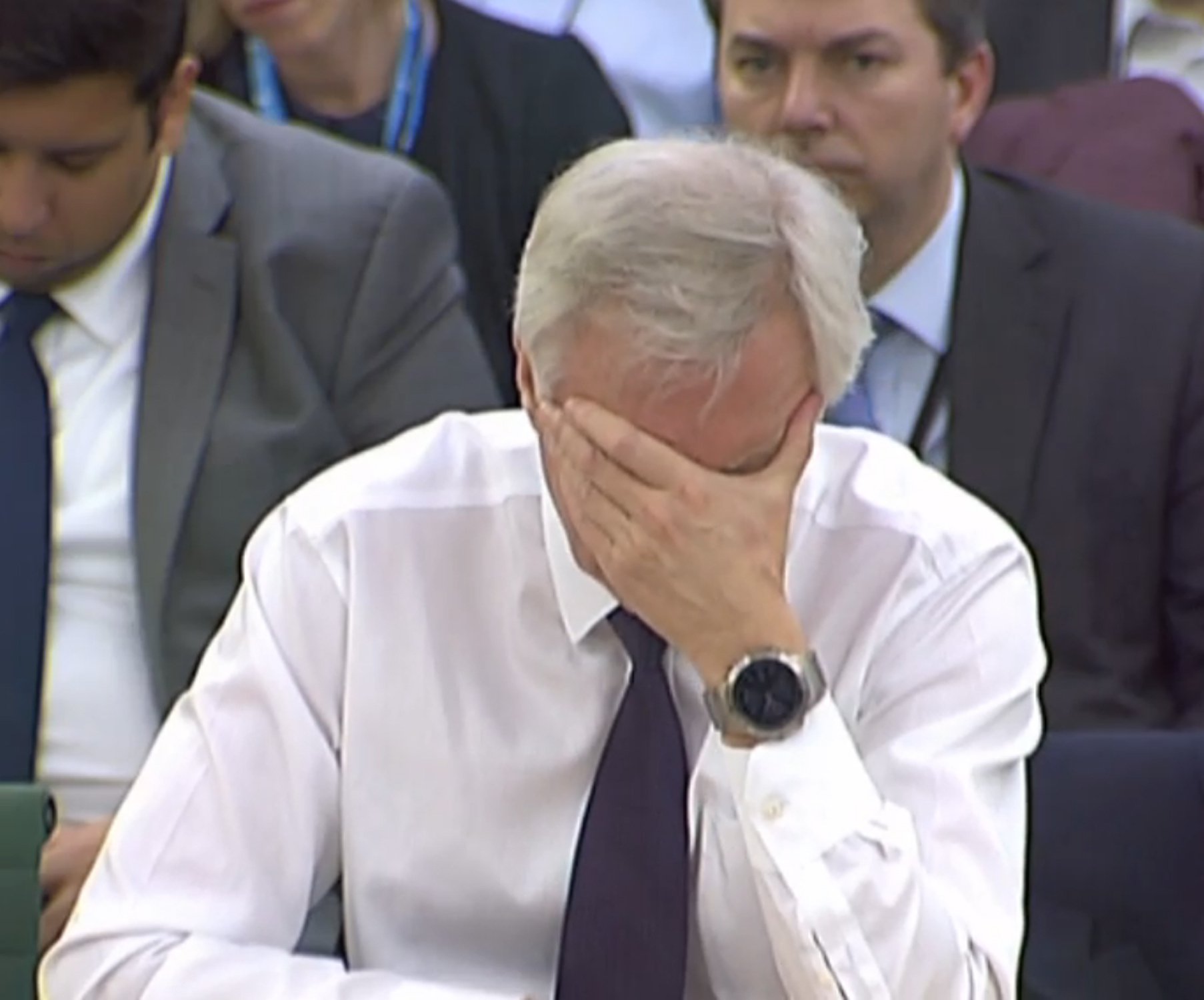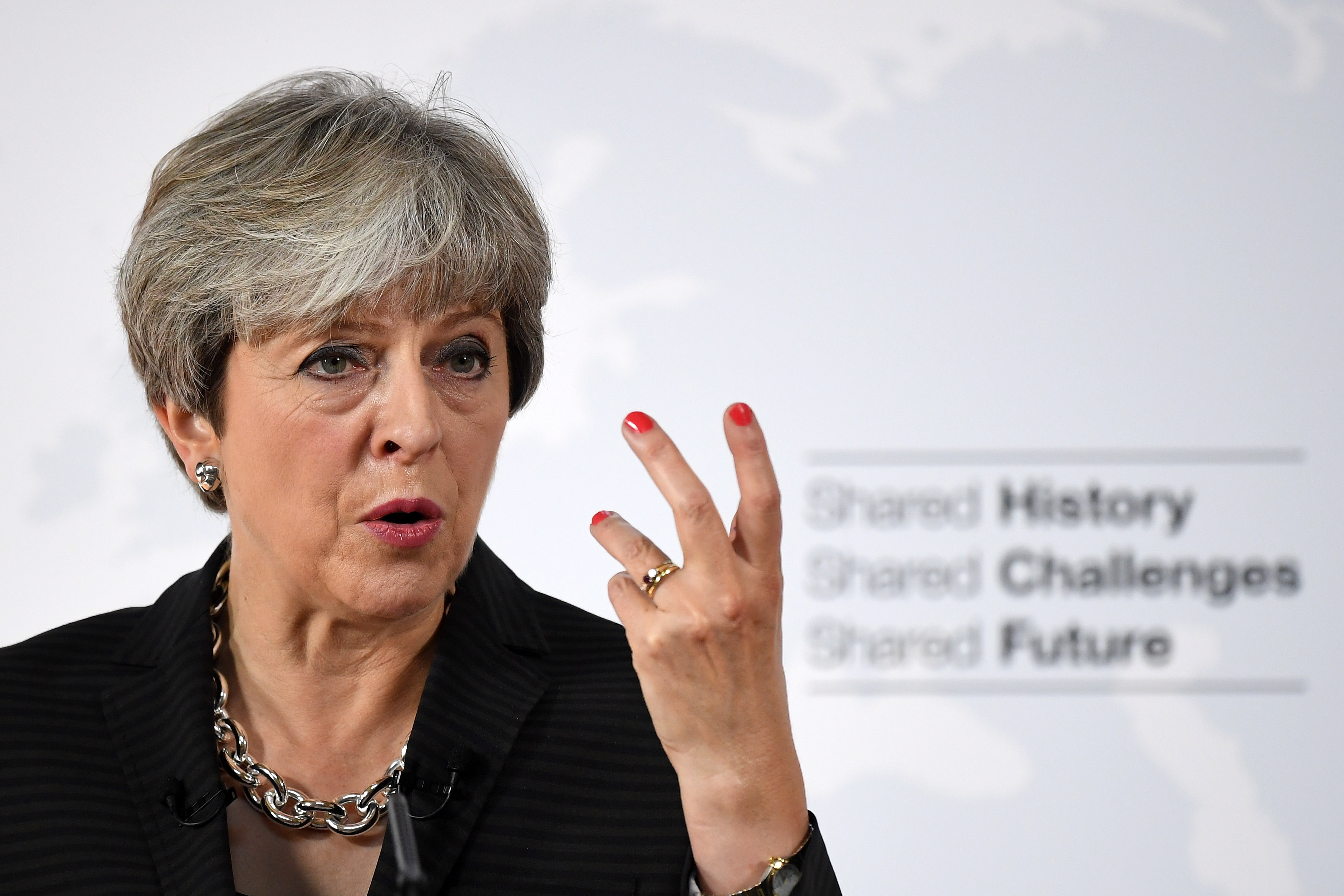The Real Reason Theresa May’s Brexit Has Failed


Theresa May’s historic defeat over the current terms of her Withdrawal Agreement from the European Union ended with her agreeing to let Members of Parliament (MPs) vote on a motion to take her no-deal bargaining chip off the table. This has weakened her position at the Brexit negotiations in Brussels. But given that most MPs won’t support no-deal, and few support her current deal, May has no other option. Three of May’s MPs resigned and co-founded a new, pro-Remain independent group, along with disaffected Labour MPs. More Tories are threatening to resign.
Another spanner in the works is opposition leader Jeremy Corbyn’s reluctant confirmation that Labour will support a Second Referendum. Corbyn’s move has decapitated the pro-Remain independent group because fewer Remainers will now support the group, turning instead to Labour, which has a much greater chance of electoral success than the independent group. Simultaneously, Corbyn’s well-timed move has further weakened May by giving pro-Remain Tories more incentive to support a Second Referendum.
The U.S. politician and businessman, George P. Shultz, is credited with saying, “He who walks in the middle of the road gets hit from both sides.” Given this truism, we should ask why Theresa May has walked the middle path of Brexit ever since her predecessor, David Cameron, resigned? Why didn’t she just revoke Article 50 and end the Brexit chaos (pleasing the Remainers) or simply prepare for a no-deal and let the U.K. withdraw on so-called WTO terms (pleasing the Leavers)? Why does her proposed Withdrawal Agreement keep the U.K. in a customs union until Brussels lets Britain leave?


This is a fair and accurate analysis. However, it leaves out other crucial factors that most commentators don’t seem keen to discuss.
The reality is that May is serving two constituents. They are not the ordinary people who voted Leave and Remain. They are the business constituents that fund the Tory party. Roughly half the Tory donors are status quo businesses, as represented, for example, by the Confederation of British Industry—the organization that publicly supported May’s deal but privately conceded that it is no good. They want to stay in the EU. In 2016, over a thousand businesses put their signatures on a letter stating that Brexit is a bad idea.
Politically, they are represented in the Tory party by people like Kenneth Clarke MP. These MPs and the businesses they champion enjoy the UK’s ability to trade and invest in a low-tariff, open borders customs union. They support the kind of neoliberal institutions that advance deregulation and privatization. Read, for instance, Clarke’s statement on Brexit (at column 1042).
The trouble is that the other half of the party’s funding comes from banks and financial services providers. It’s true that many banks want to Remain in the EU, but many financial services want to Leave. The latter group includes asset managers and hedge funds. Only 300 of these and other businesses signed a letter in support of Brexit. But their power is more concentrated than that of the Remainer businesses. After the global financial crisis, which was caused by neoliberal deregulation of the kind supported by the pro-EU groups, the EU was compelled by grassroots pressure to introduce some restrictions on the financial services industries that had caused so much damage.
EU legislation was introduced, including MIFID and MIFID 2. These directives harmed the profit potential of London’s major financial traders, especially hedge funds and asset managers. When the Referendum was announced, two political analysts started contacting financial institutions in an effort to understand what was going on. They discovered that “a powerful minority, mainly comprising hedge funds, has emerged within the financial sector and is in favour of leaving,” so that the UK can escape the clutches of EU financial regulation.
In fact, the most ardent Brexiteers work in financial services: Michael Hintze, Crispin Odey, Peter Hargreaves, Arron Banks, and others. All of them are either big Tory donors or UKIP supporters. Banks allegedly suggested that UKIP supporters join the Tory party at the grassroots in order to push it further to the right. Then-Home Secretary, Theresa May, allegedly blocked police efforts to investigate Banks’s role in funding the Leave campaign. MPs reflexively point the finger at Russia. (See Tom Brake MP at column 215). Politically, the wealthy Leavers and their institutions are represented by Tories like Jacob Rees-Mogg of the European Research Group. These political Brexiteers also want a totally deregulated financial services sector.
So, the choice faced by ordinary British people is between a neoliberal EU supported by millionaires like Kenneth Clarke or an ultra-neoliberal Brexit supported by multimillionaires like Jacob Rees-Mogg. Meanwhile, ordinary working-class people pay the price for these elite games, as usual.
T.J. Coles is a postdoctoral researcher at Plymouth University at the author of several books, including The Great Brexit Swindle (2016, Clairview Books)

“So, the choice faced by ordinary British people is between a neoliberal EU supported by millionaires like Kenneth Clarke or an ultra-neoliberal Brexit supported by multimillionaires like Jacob Rees-Mogg. Meanwhile, ordinary working-class people pay the price for these elite games, as usual.”
YES!
That should be plastered on the side of all the buses, not just a single red one. Brexit has always been a question of how much you want to get shafted by neo-liberalism – like being forced to choose between passing through a 4′ deep cow turd or a 10′ deep elephant turd. With no guarantees of soap and water on the otherside, unless you are rich enough to own some already.
There is a new game in town being played by the one and only Christina. She physically starts working with Aberdeen City Council after BREXIT Day. Her on-line avatar has been active for a fortnight or so. Follow her on Twitter @5dYour
May has to appeal to more than two constituents, for example she needs to pay attention to Members of the Conservative Party, who are overwhelmingly pro-Brexit. I feel that this analysis also reduces the question to “follow the money”. Which is true for many, but not for all. A lot of peope are voting against their own financial interest (or don’t want to see that they might be doing so), because they have a political imperative (as Gary Young recently pointed out in the Guardian, https://www.theguardian.com/commentisfree/2019/feb/01/poorer-brexiters-worse-off-working-class-leavers). I disagree with them, but that’s another matter.
I myself voted to remain, not for financial interest but because I believe in a European Project. Same for Scottish independence. On very big, almost existential issues, it’s not necessarily “the economy, stupid”.
This is a pretty concise explanation of the reality of the situation and has been set out in other sites and papers over the past few years. So, thank you for the summary.
However, we are where we are, with the end of March looming. What should be done?
That is the thing which is missing fro so many of these explanations.
Quo Vadis?
This is the first sensible analysis about Brexit that I have read…ever. The fact that Brexit serves interests in The City of London and is, in fact, very rational, from a certain view, and that this must not be understood by the general punters on the street, should have been clear to media pundits. This is what many of us have know from the outset. Unfortunately the MSM and alternative media swallowed the line: ‘it’s a facisit omni-shambels – no more analysis necessary’. A smoke screen of confusion and distraction and blaming the ‘other’ (people worried about their jobs, overwhelmed by fast cultural change etc – whether of legitimate concern or not, still peoples’ fears) is the strategy. Thank you very much for this coherent and sensible article.
I am afraid that the article is conspiracy theory rubbish.
The reason that Brexit is now (almost ) certain to fail is that the British political class has failed. Parliament went to the people and asked us our opinion of the EU. The people voted to leave. In the GE of 2017, 85% of all voters ( and 65% of Scottish voters) voted for parties committed to respecting the referendum result. A huge majority of MPs voted to trigger Article 50 which says that there is either a deal in two years or otherwise the leaving state exits without a deal Now they want to rule out “no deal”! Could anything be more pitiful! No wonder Tusk talks about our ” stupid refderendum” How dare the revolting masses express an opinion!
Now Labour and Tories are betraying the people and splitting into their respective “Lord Halifax” factions.
The City, which I frequently work with, was heavily pro-Remain. Any kind of person in the UK can be a Leaver or a Remainer. Voters should be respected for how they voted, whether Leave or Remain.
I now have very severe doubts as to the future of our democracy. I also doubt whether any Indyref 2 is really viable. The Deep State will simply thwart it. What funny bedfellows Bella have chosen! The CBI, Amazon, Tesco, Martin Selmayr, Barack Obama, Tony Blair, Alistair Campbell and other assorted elitists.
William
So it’s a conspiracy theory, and then you come up with a conspiracy to suit your view. William, the only thing pitiful is May’s recent heart felt plea to the country, only she deserves no pity. Your little Englander revolution is over.
Doesn’t Mr May work in financial services?
how dare the punters vote leave! That is not what the Establishment wants. which explains how the Remainers are playing their games. (Meanwhile the SNP push for Independence so that they can substitute Brussels rule for Westminster) so much for freedom and so called democracy.
‘Brussels rule’.
Was it Brussels who foisted UCS, HS2, Austerity, Invading Iraq, bombing Syria, selling hellish weapons of war to the Saudis, was it?
Was it Brussels who introduced the Rape Clause and responsible for 120, 000 state engineered deaths through poverty?
Name one ‘Brussels’ law that has enslaved your poor soul, w.b.
Human rights, Employment Law, food and Hygiene Standards?
England will degenerate into a third world dumping ground for US meat and poultry, and our framers and distillers will go to the wall.
Kentucky Scotch, anyone?
You lot will not be happy until young Scots rise up and take their country back forcibly.
Then you can send gunboats up the Clyde, and open Re-Orientation Camps to corral all those cultist Nats.
Your Union is dead.
Greed and xenophobia killed it, not Scotland’s right to self Determination.
By Jove! You’re right!